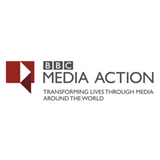
The briefing draws on BBC Media Action’s experience in Bihar, India, to explore how, where and when low-tech mobile phones can best help reduce maternal and child mortality. Mobile health (mHealth) projects are increasingly common across the developing world. This briefing highlights how the project, funded by the Bill and Melinda Gates Foundation, has sought to overcome two problems that have proved particularly challenging in this area: those of scale and sustainability.
Bihar has some of the highest maternal and child mortality rates in India. It also has low radio and television penetration, but high access to mobile telephony. The project is on track to help train up to 200,000 community health workers over five years, and to reach almost 7 million pregnant women and mothers of children under the age of two with potentially life-saving information. The briefing argues that, especially when used as part of clearly thought out and well-developed health communication strategies, mobile telephony can add real value in saving lives.
Authors Yvonne MacPherson and Sara Chamberlain show how the model utilises widely available basic handsets, localised content and a public-private partnership between the state government and the mobile sector to deliver services with real reach and resonance. The model has been developed specifically for hard-to-reach, poor communities with low literacy levels and little access to health services and information.
The Health on the Move briefing, which was prepared thanks to funding from the UK Department for International Development, is part of a broader series focused on the role of media and communication in achieving governance, health, humanitarian and resilience outcomes.